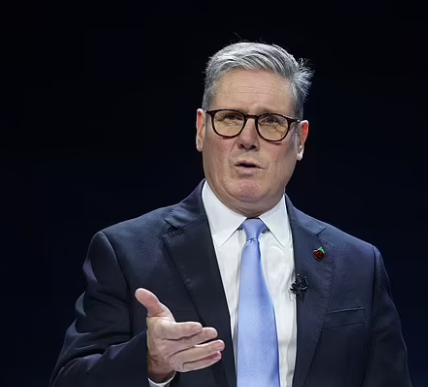Sir Keir Starmer was under pressure to reveal who authorised a Downing Street security pass for a millionaire donor on Sunday amid a growing cronyism row engulfing the Government.

The Tories wrote to Simon Case, the Cabinet Secretary, demanding to know if the Prime Minister or Sue Gray, his Chief of Staff, had signed off the pass for Lord Alli who has donated £500,000 to Labour.
The Telegraph can also disclose that Lord Alli gave £10,000 in January to the constituency Labour party of Liam Conlon, the son of Ms Gray and winning candidate for the Beckenham and Penge seat.
A millionaire television mogul and former investment banker who chaired Labour’s election fundraising, Lord Alli is the single biggest personal donor to Sir Keir, who has received nearly £55,000 from him including £16,200 of “work clothing”, in April this year.
The disclosure is the latest cronyism row to hit Labour after it emerged that several former Labour aides, advisers and donors have been handed civil service jobs in the new Government.
Lord Alli was given the pass after Labour’s election victory last month, allowing him unrestricted access to No 10.

It is rare for anyone not formally employed as a political adviser or civil servant to be given a Downing Street pass, or to host events on the premises. Tories claimed that under them, such passes were normally signed off by either the Prime Minister, their parliamentary private secretary or chief of staff.
John Glen, the Shadow Paymaster General, told Mr Case that a Downing Street pass should be “privilege” for those who required access for work including civil servants and special advisers, “not those requiring occasional access” which was possible without a pass through the normal visitor system.
He wrote: “It is therefore deeply concerning that a pass was granted to a Labour donor providing unfettered access to the heart of government after significant cash and non-cash donations were made to the Labour Party.
“All governments should uphold the very highest standards, and I note this is a key stated objective of the Prime Minister, as such I ask that you urgently clarify: Who authorised the pass for Lord Alli? Was it the Prime Minister or his Chief of Staff, Sue Gray?”

He also demanded answers on when the pass was issued, whether it was fast-tracked after the election and if any other Labour party donors had received similar passes.
Labour is understood to maintain that Lord Alli’s pass was not unusual, that it was within the rules, and that it was a temporary arrangement until the end of this month.
It is said to have allowed him to attend a “small number” of political meetings in Downing Street without civil servants present. He also organised a post-election reception in the Downing Street garden with others who helped to bankroll its campaign.

Lord Alli handed in the pass several weeks ago, according to one source.
Government sources have not disclosed why Lord Alli was given a pass, who authorised it, why he handed it back before it expired at the end of this month and whether anyone else from the Labour not involved in the No 10 operation had a pass.
Responding to the controversy, Pat McFadden, chancellor of the Duchy of Lancaster, said: “I believe he may have had one, I don’t think he has got one any more and I don’t think it’s unusual for people to have passes to attend political meetings if they need to do so.”
He added: “He won’t have been involved in any governmental decisions, he’s not someone who holds a policy responsibility…I don’t think he’s got a pass any more, he may have needed it for a short time in that period immediately after the election. He won’t have been involved in government or policy decisions.”
The row comes a day after it emerged that Ian Corfield, another Labour party donor, was stepping down from his civil service role as director of investment at the Treasury, to which he was appointed just weeks ago.
Mr Corfield, who has given £20,000 to Labour and £5,000 to Rachel Reeves, the chancellor, will instead serve as a temporary and unpaid adviser to the chancellor’s investment summit in October.
Last week it emerged that Jess Sargeant, the Labour think-tank director, had been made a Cabinet Office adviser on constitutional reform, which is responsible for “ensuring the highest standards of propriety and ethics across all government departments”.
At least four other Labour aides or advisers with ties to the party or supportive think-tanks have taken up posts in the Civil Service, prompting complaints from the opposition about the politicisation of the usually impartial bureaucracy.

Mr Glen said in separate comments that it was “time Labour came clean on all the people they’ve parachuted into top civil service jobs and the donors they’ve returned favours to”.
Lord Alli, 59, was the first openly gay and youngest member of the House of Lords when he was ennobled in 1998 by Sir Tony Blair, a longstanding ally. Sir Tony felt that Lord Alli, a Muslim from south London who did not attend university, could broaden the party’s appeal.
Lord Alli has a fortune estimated at £200 million, having led companies that pioneered genre-breaking TV programmes such as The Word, Big Breakfast and Survivor. He also chaired Asos, the online fashion retailer, and Chorion Ltd, which owns the rights to Enid Blyton and Agatha Christie.
He is seen as having been integral in raising the funds that helped Labour outspend the Tories by more than £18 million in the year before the election and during the campaign itself.




